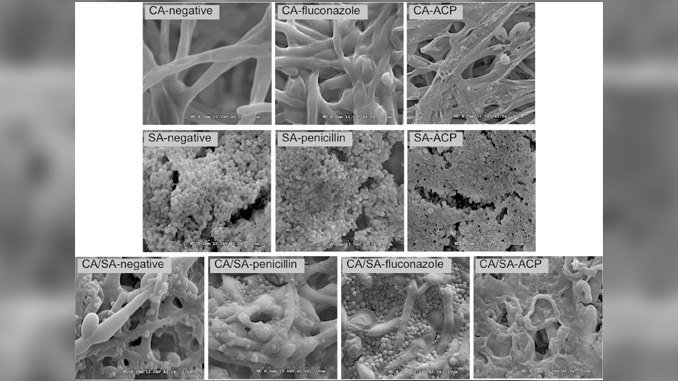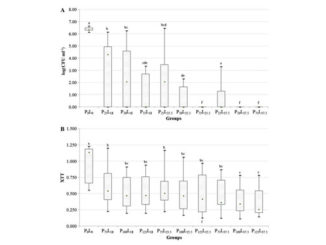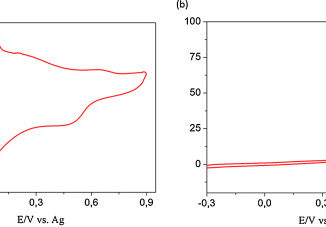
Writers: Juliana Aparecida Delben; Chaiene Evelin Zago; Natalia Tyhovych; Simone Duarte; Carlos Eduardo Vergani
Keywords: cell; structure; microorganism; biofilms
Abstract: Considering the ability of atmospheric-pressure cold plasma (ACP) to disrupt the biofilm matrix and rupture cell structure, it can be an efficient tool against virulent oral biofilms. However, it is fundamental that ACP does not cause damage to oral tissue. So, this study evaluated (1) the antimicrobial effect of ACP on single- and dual-species biofilms of Candida albicans and Staphylococcus aureus as well as (2) the biological safety of ACP on in vitro reconstituted oral epithelium. Standardized cell suspensions of each microorganism were prepared for biofilm culture on acrylic resin discs at 37°C for 48 hours. The biofilms were submitted to ACP treatment at 10 mm of plasma tip-to-sample distance during 60 seconds. Positive controls were penicillin G and fluconazole for S. aureus and C. albicans, respectively. The biofilms were analyzed through counting of viable colonies, confocal laser scanning microscopy, scanning electron microscopy and fluorescence microscopy for detection of reactive oxygen species. The in vitro reconstituted oral epithelium was submitted to similar ACP treatment and analyzed through histology, cytotoxocity test (LDH release), viability test (MTT assay) and imunnohistochemistry (Ki67 expression). All plasma-treated biofilms presented significant log10 CFU/mL reduction, alteration in microorganism/biofilm morphology, and reduced viability in comparison to negative and positive controls. In addition, fluorescence microscopy revealed presence of reactive oxygen species in all plasma-treated biofilms. Low cytotoxicity and high viability were observed in oral epithelium of negative control and plasma group. Histology showed neither sign of necrosis nor significant alteration in plasma-treated epithelium. Ki67-positive cells revealed maintenance of cell proliferation in plasma-treated epithelium. Atmospheric-pressure cold plasma is a promissing approach to eliminate single- and dual-species biofilms of C. albicans and S. aureus without having toxic effects in oral epithelium.




